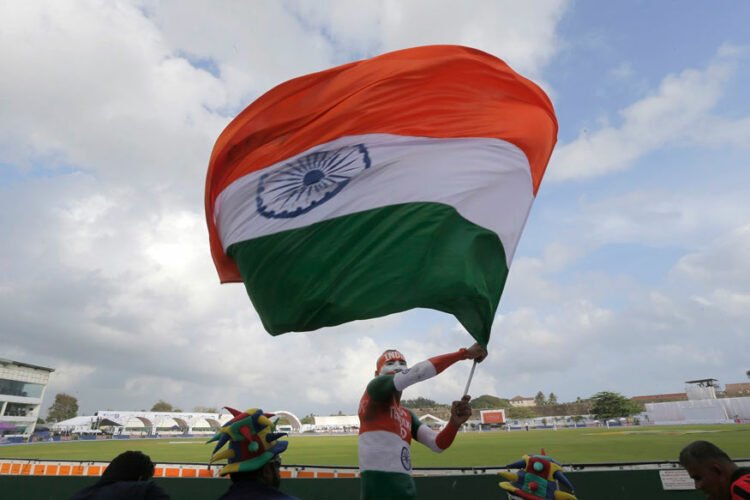There has been an interesting debate in the process of making of the Indian Constitution which resulted in exchange of views between the prime mover of the resolution of aims and objects, Pandit Jawaharlal Nehru and the chairman of the Drafting Committee Dr. B.R. Ambedkar.
This was about inclusion or substitution of a certain word to reflect the basic tenet of the constitution in all its comprehensive interpretation. It is on record that Nehru while moving the objective resolution contended that “this constituent assembly declares its firm and solemn resolve to proclaim India as an independent sovereign republic and to draw up for her future governance a constitution.”
Nehru obviously has anticipated such objections which were raised about the omission of the word “democratic” and substituted with the word ‘republic’ in the Nehru draft. Without mincing any words regarding the “omission” of the word democracy he did not succumb to such demands to use the word “democracy” in place of ‘republic.’ Nehru pertinently informed such members why had he brought out the word “democratic”.
He said he told them that it is conceivable, of course, that a republic may not be democratic but the whole of our part is witness to this fact that we stand for democratic institutions.
Obviously we are aiming at democracy and nothing less than a democracy. What form of democracy, what shape it might take is another matter? The democracies of the present day, many of them in Europe and elsewhere, have played a great part in the world’s progress.
Yet, it may be doubtful if those democracies may not have to change their shape somewhat before long if they have to remain completely democratic. We are not going just to copy, I hope a certain democratic procedure or an institution of a so called democratic country. We may improve upon it. In any event whatever system of government we may establish here must fit in with the temper of our people and be acceptable to them. We stand for democracy.
It will be for this House to demonstrate what shape to give to that democracy, the fullest democracy, I hope.
The House will notice that in this Revolution, although we have not used the word ‘democratic’ because we thought it is obvious that the word ‘republic’ contains that word and we did not want to use unnecessary words and redundant words, but we have done something much more than using the word. We, have given the content of democracy in this Resolution and not only the content of democracy but the content. However such lucid explanation did not convince the legal stalwart Dr. B.R. Ambedkar.
Ambedkar made a valid point that when one reads that part of the Resolution, it remains one of the declaration of the rights of man which was pronounced by the French Constituent Assembly.
He said I think I am right in suggesting that, after the lapse of practically 450 years, the declaration of the rights of man and the principles which are embodied in it have become not only the part and parcel of the mental makeup of modern man in every civilized part of the world, but also in our own country which is so orthodox, so archaic in its thought and its social structure.
Hardly anyone can be found to deny its validity. As I said from the debate that has gone on in the House, this has become a matter of controversy. The controversy seems to be centered on the use of that word ‘Republic’. It is centered on the sentence occurring in paragraph 4 ‘the sovereignty is derived from the people.’
However postulates like ‘socialism and secularism’ were added only through 42nd amendment during the regime of Indira Gandhi as Prime Minister to the preamble which under the chairmanship of Dr Ambedkar however drop the word independent from the Nehru
draft but due to his insistence Ambedkar prefaced the word ‘democratic’ before the word ‘republic.’
The final draft of the preamble was not placed before the general constituent assembly which however ratified it. As a consequence the preamble would read “We the people of India having solemnly resolved to constitute India into a sovereign, socialist, secular democratic republic……” It is an interesting feature of the constitution making that two great stalwarts like Nehru and Ambedkar again had a tiff for omission of the word ‘socialist’ from the draft resolution relating to objectives. Therein also Dr. Ambedkar candidly said that these paragraphs set out the objectives of the future constitution of this country.
I must confess that, coming as the Resolution does from Pandit Jawaharlal Nehru who is reputed to be a Socialist, this Resolution, although non-controversial, is to my mind very disappointing.
I should have expected him to go much further than he has done in that part of the Resolution. As a student of history, I should have preferred this part of the Resolution not being embodied in it at all. To repeat it now as the Resolution does is, to say the least, pure pedantry. These principles have become the silent immaculate premise of our outlook. It is therefore unnecessary to proclaim as forming a part of our creed.
(The article first appeared in The Hitavada)
[This Article By Kanak Tiwari first appeared with The Hitavada, Raipur, 19 Jan 2021. He is a Senior lawyer of Chhattisgarh and can be reached at kanaktiwari.cg@gmail.com]
India CSR offers strategic corporate outreach opportunities to amplify your brand’s CSR, Sustainability, and ESG success stories.
📩 Contact us at: biz@indiacsr.in
Let’s collaborate to amplify your brand’s impact in the CSR and ESG ecosystem.























